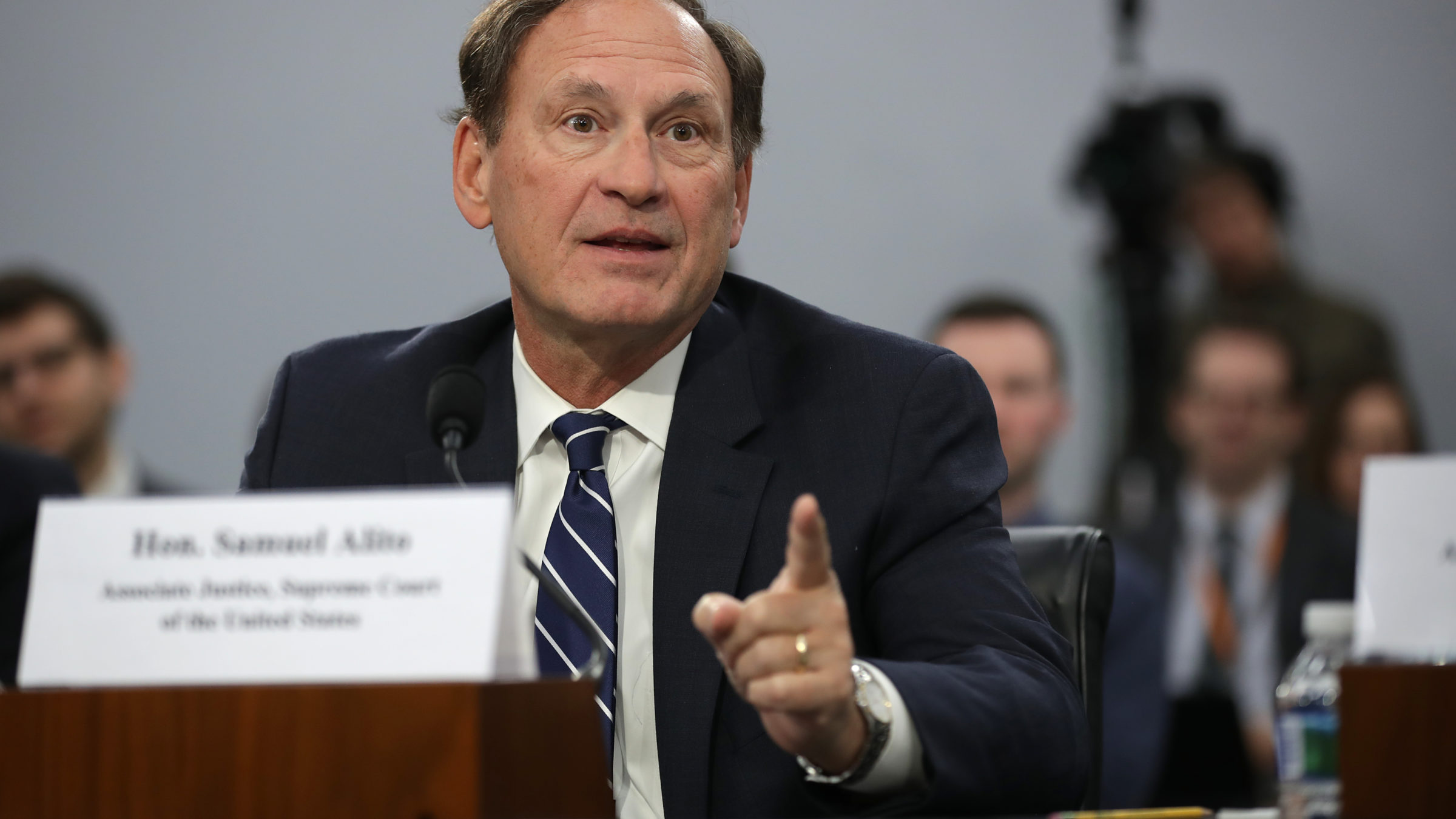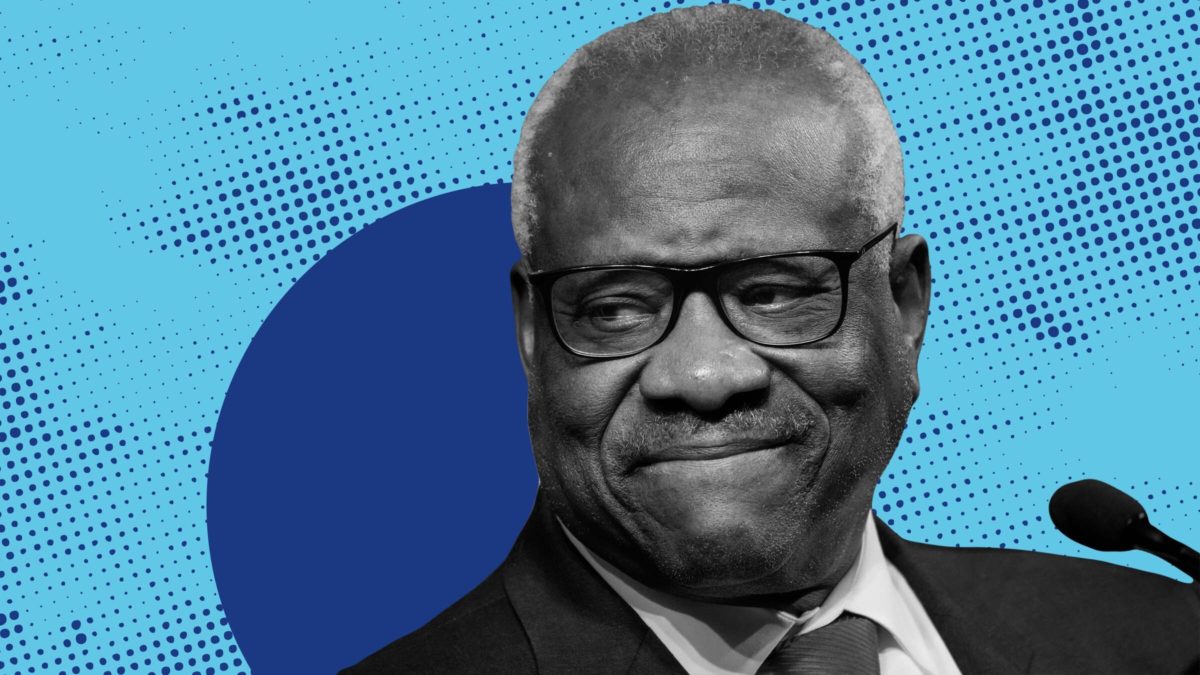I should start with the caveats to Monday’s revelation that five Supreme Court justices have voted in Dobbs v. Jackson Women’s Health Organization to overturn Roe v. Wade, thus ending constitutional protections for the right to choose with a few taps on Sam Alito’s keyboard. The would-be majority opinion, authored by Alito and obtained by Politico, is a draft, circulated among the justices in February and theoretically subject to revision in the intervening months. Justices can and do shuffle their votes around, leaving tentative majority opinions perpetually vulnerable to becoming scathing dissents (and vice versa). If some unlikely alliance were to emerge to grant Roe a last-minute reprieve in Dobbs, it would not be the first time the right’s howling war on abortion rights has improbably come up short.
But whatever label appears atop Alito’s opinion when Dobbs is eventually decided, the depraved glee that animates it makes clear that Roe is dead precedent walking. Even if Alito’s leaked draft, for whatever reason, does not carry the day this time, the Supreme Court’s 6-3 conservative supermajority now has the votes to subjugate the bodily autonomy of people who may become pregnant to the whims of state lawmakers who are free to ignore it.
Over the course of 67 pages, Alito’s draft takes a shotgun approach to Roe, trotting out every anti-choice argument the conservative legal movement has cooked up since the case was decided in 1973 and reaffirmed in Planned Parenthood v. Casey in 1992. Roe was “egregiously wrong from the start, and lacks “any grounding in the constitutional text, history, or precedent.” The right is not “deeply rooted in this Nation’s history and tradition,” or “implicit in the concept of ordered liberty.” Abortion was a crime at common law, and many states outlawed it by statute. (Here, Alito marshals a 31-page appendix of mid-19th century state-level abortion restrictions to support his argument, as if the value Civil War-era lawmakers placed on the life, health, and autonomy of women were somehow persuasive.)
To ensure he hits a full right-wing buzzword bingo, Alito includes a footnote allusion to the fringe talking point that the pro-choice movement is motivated by an insidious desire to exterminate Black people. “It is beyond dispute that Roe has had that demographic effect,” Alito writes. “A highly disproportionate percentage of aborted fetuses are black.” He takes great pains to note that he, personally, does not “question the motives” of supporters of pro-choice legislation, but merely notes it for the record. In the Fox News vernacular, he is just asking questions here, and he knows perfectly well that his intended audience will provide their own answers.

When you’re about to Do The Shit (Photo by Chip Somodevilla/Getty Images)
At times, Alito seems to relish this opportunity to methodically eviscerate the Republican Party’s least favorite civil right, going out of his way to make sure he buries it deep enough. “Until the latter part of the 20th century, there was no support in American law for a constitutional right to obtain an abortion,” he writes. “Zero. None.”
This logic treats a legislature’s willingness to protect the rights of vulnerable people as dispositive of the existence of those rights. If adopted as the Dobbs majority, it remains unclear why this opinion would not place other fundamental rights protected by the Court—to marriage, to contraception access, to sexual privacy, and so on—in immediate jeopardy.
Casey, a fragile compromise that preserved Roe’s core holding while weakening it considerably, fares no better in Alito’s estimation. He excoriates its “unworkable” standard as “plucked from nowhere,” and as undergirded by vague, specious reasoning that ignored Roe’s “profound wrongness.” Pregnancy is no longer the burden it once posed for women, Alito concludes, given that health insurance typically pays for the costs of childbirth, and the existence of “safe haven” laws that allow new mothers to leave unwanted infants at the fire station steps without facing legal consequences. The opinion leaves no misogynist stone unturned. It is a sneering victory lap, distilled to a form printable in the U.S. Reports.
This result is no surprise to anyone who has watched the Republican Party spend decades reorganizing itself around opposition to a woman’s right to choose while its judges publicly pretended to care about precedent. Thomas voted to overturn Roe in Casey, just months after proclaiming during his Senate confirmation hearings that he’d never given the subject much thought. Since his own confirmation in 2006, Alito has been the Court’s most vocal anti-choice justice who is (1) still alive and (2) not Thomas.
But their elevation from frustrated dissenters to victorious culture warriors would not have occurred without Donald Trump, who won over skeptical Republicans on the campaign trail in 2016 by relentlessly plugging his “pro-life” bona fides. Roe would be overturned “automatically” if he were elected president, he pledged, because he’d appoint justices who would not waver in the moment of truth.
Trump was wrong, it seems, only about the timing. After oral argument, the justices meet in private conference to take a sort of straw poll that gets the opinion-writing process underway. Sure enough, per Politico, all three of Trump’s appointees—Justice Neil Gorsuch, Brett Kavanaugh, and Amy Coney Barrett—voted to join Alito and Thomas in Dobbs, a lineup that “remains unchanged as of this week.” Although Chief Justice John Roberts apparently remains undecided, his vote is mathematically irrelevant as long as that coalition holds. The conservative legal movement has never been shy about why it sought politically unaccountable judicial power. Now, its most loyal acolytes are enjoying a bumper crop of it.
The clearest signal of the opinion’s inevitability comes towards the end, when Alito grapples with the cultural backlash that will ensue should the Court overturn Roe, an outcome that nearly 7 in 10 Americans oppose. “We cannot allow our decisions to be affected by any extraneous influences such as concern about the public’s reaction to our work,” he writes. “We can only do our job, which is to interpret the law, apply longstanding principles of stare decisis, and decide this case accordingly.”
It is a closing pep talk to his fellow conservatives, reminding them that overturning Roe is both a solemn obligation and a selfless act of judicial courage. These justices have spent their entire legal careers steeped in this fight; what a privilege to wield the power to end it at last.

